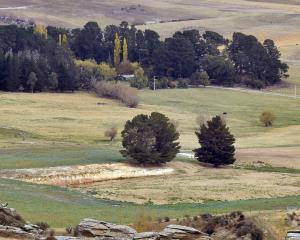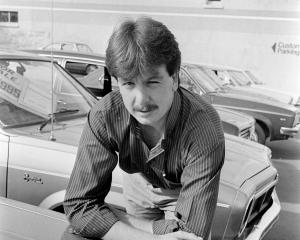May has been a hell of a month.
I'm booking myself into rehab after a relentless literary binge that started off with a mild dose of The Star Regent 24-hour Book Sale.
This was backed up with regular jaunts to the Dunedin Writers and Readers Festival before I flew off to Auckland to size up the travel writing talent at the Cathay Pacific Travel Media Awards.
With most events sold out, Dunedin's new literary festival was highly successful and is destined to become a significant and much-loved highlight on the calendar.
While I could write plenty about this glitzy and glamorous new kid on the block that attracted literary luminaries the equivalent of Lorde or Lydia Ko, let me switch the spotlight back to that legendary favourite which kicked off my month of literary madness - the 24-hour Book Sale.
I have only missed one or two in the last 34 years and the event has become a familiar ritual for me.
For those into reality TV, the filming of this remarkable 24-hour bookathon would make fascinating viewing.
I made just two visits this year, joining the well-behaved queue for the midday opening session and then returning in the late hours of Friday evening.
The numbers of afternoon book browsers seemed lighter and more sedate this year but there was still the usual forgoing of personal body space as we put all our senses to work to paw over, caress and devour the thousands of second-hand books on offer.
And no book sale would be complete without the well-seasoned early bird book dealers plucking stock from tables like feathers off a chook.
As the long lines of well-stocked trestle tables are surrounded on all sides by buyers of all ages, a subconscious ritual takes place.
With heads cocked, rows of self-absorbed book scanners move in unison like choreographed line dancers, respectfully waiting for their neighbour to take one step sideways in the correct direction.
Sometimes there is a variation in the etiquette when buyers merging from left and right, pause, and then swap positions to continue their hunt, unless thwarted by someone lingering with intent to push their way into the literary trough.
Backpacks, giant carry bags and banana boxes can be a menace in the narrow aisles between the book rows but these obstacles are generally accommodated with a laid-back tolerance.
Downstairs under the Regent Theatre stage, a different sub-culture can be found - the big spenders prepared to pay more than a dollar for the priced books.
The New Zealand section is a big attraction and soon my cash runs out.
Some familiar faces on volunteer duty behind the tills greet me with cheery comments, their latex surgical gloves already blackened by constant book-wrapping in newsprint, courtesy of the Otago Daily Times.
With my arms aching from heavy parcels, it's time to return to the outside world and head home to take stock of my ''scores'' and prepare for a late night foray when the book tables will be replenished.
When I return to the book sale about 10pm, the lower Octagon, with its array of bars and cafes is buzzing with late-night patrons.
And inside the Regent theatre, another party is in full swing.
I'm greeted by the Foxy Tones, a slick sequined three-piece female dance band belting out Abba hits and the occasional Andrews Sisters boogie-woogie favourite.
There is a different toe-tapping crowd here now but books are still the real focus.
The youthful banter and repartee of university student night-owls around the literature table attracts my attention.
It's good to observe that Horace and Cicero are still cool.
And in a serendipitous moment I quickly pluck a ''find'' from the table as Ovid whispers in my ear: ''Let your hook be always cast; in the pool where you least expect it, there will be a fish.''
My find is the selected verse of C. J. Dennis, that much-loved ''Sentimental Bloke'' once referred to by the prime minister of the day as ''the Robert Burns of Australia''.
Last year I stayed a few days in Mintaro, a heritage village in Adelaide's winegrowing Clare Valley.
It was in this tiny hamlet that I discovered that C. J. Dennis was schooled there under the watchful eye of his four maiden aunts who dressed him in a suit, Eton collar, patent leather shoes, brown gloves and a cane.
The poor boy, whose first name was ''Clarence'', was a favourite target for the village boys and no wonder he abandoned this name in later life.
I can sympathise with ''Den'' (as he later called himself) because my own father's birth name was Clarence and he wisely decided to call himself Peter.
Books can take you in many directions.
As the book sale headed to midnight, my second haul of carefully selected novels, biographies and poetry collections began to weigh me down.
The works of many of our Writers Festival guests were still to be found when least expected - McCall Smith, Knox, Farrell and O'Sullivan caught my eye.
There is no longer any crowding around the sports section and an autographed copy of New Zealand cricket poems cries out for me to take the catch.
In the New Zealand section I spy a hardy annual - a hardback copy of Lord Cobham's Speeches - for many years represented by unwanted multiple copies at the book sale but now not so common.
The changing face of the 24-hour book sale over its 34-year history would make a fascinating study topic.
Maybe I'll sleep on it because it's time to head home and leave the hardy volunteers with their new wave of reading guests to keep them company during the wee small hours.
But sleep doesn't always come easy when it has to compete with reading and writing.
The Cathay Pacific Media Awards has got me thinking.
My son, Daniel, holidaying in Cuba has sent me a snap from the Hotel Sevilla which features in Graham Greene's Our Man in Havana and was a popular hang-out for Ernest Hemingway.
Maybe a travel writer's junket to Cuba would be a good tonic - once I check out of rehab.
• Tony Eyre is a Dunedin writer.











